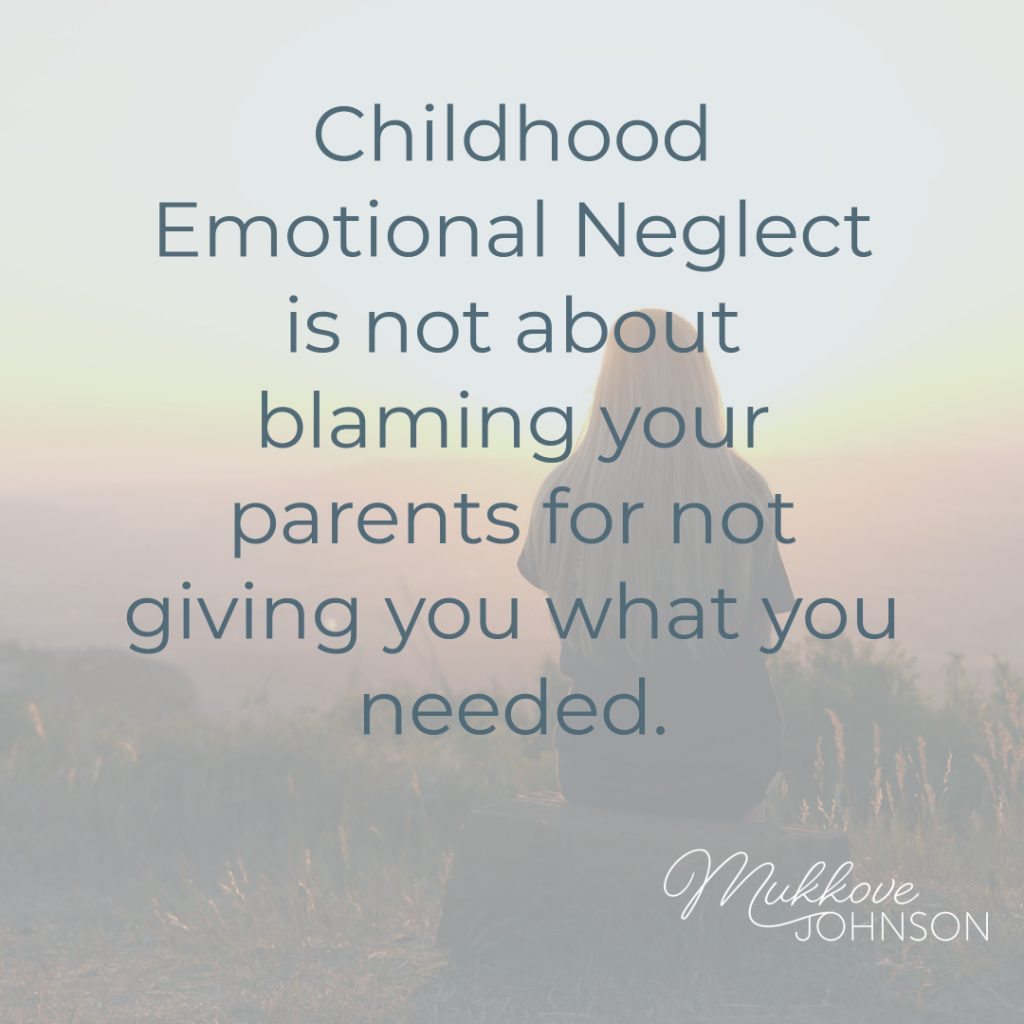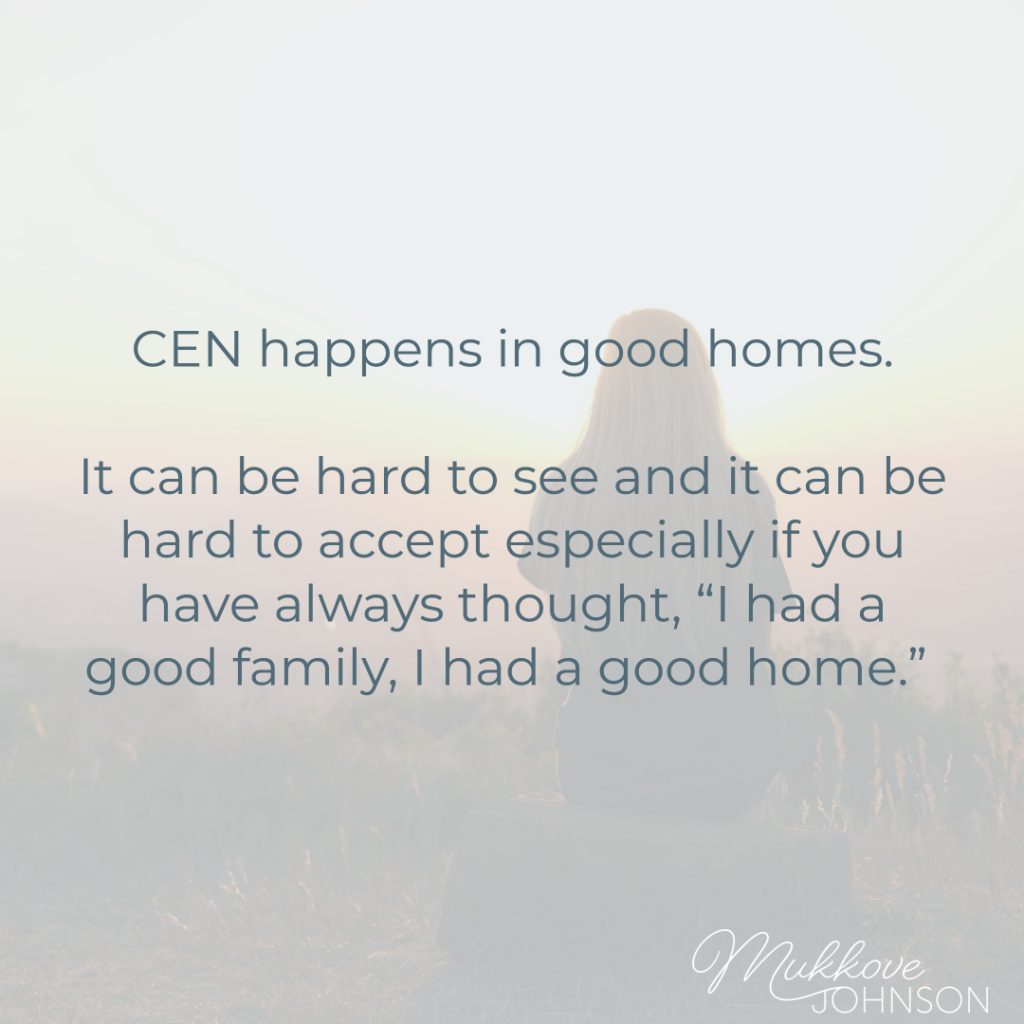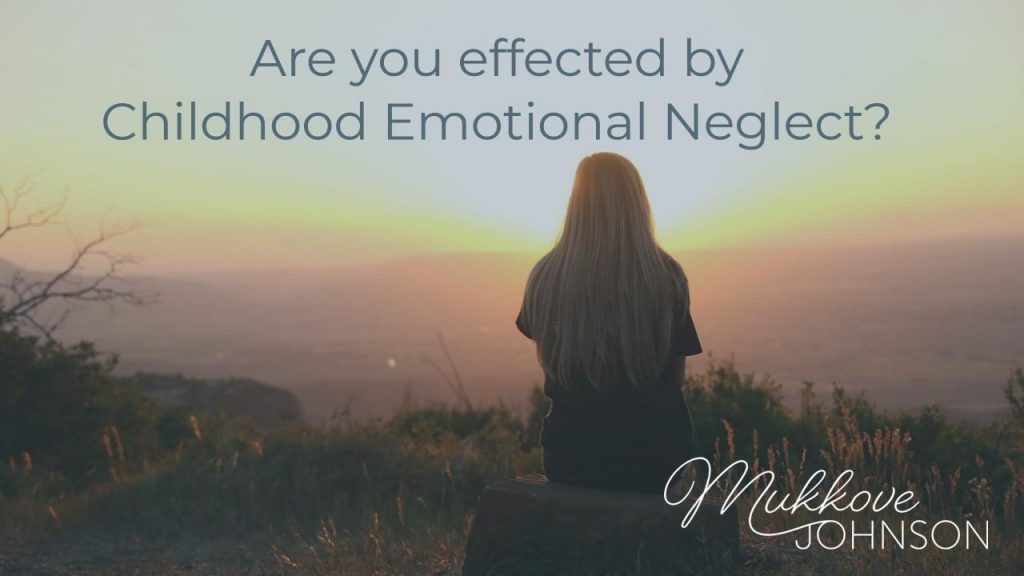Are you harder on yourself than you are on anyone else?
Do you feel empty or struggle to connect with your own feelings?
Do you strongly resist asking for help?
You could be dealing with the effects of Childhood Emotional Neglect (CEN).

What is Childhood Emotional Neglect?
Emotional Neglect is a parent’s failure to respond enough to a child’s emotional needs.
Emotional Neglect is, in some ways, the opposite of mistreatment and abuse. Whereas mistreatment and abuse are parental acts, Emotional Neglect is a parent’s failure to act. It’s a failure to notice, attend to, or respond appropriately to a child’s feelings. Because it’s an act of omission, it’s not visible, noticeable or memorable.
Dr. Jonice Webb, Psychologist
I love that Dr. Jonice Webb teaches CEN is not about blaming your parents. Your parents, did the best they could with what they had and blaming them is not going to help you. Since most of you are probably moms, there’s no beating yourself up for what you may see in your children either.
Childhood Emotional Neglect is not about blaming your parents for not giving you what you needed. It is simply recognizing that for whatever reason, and there are lots of them, you did not get what you needed emotionally. You didn’t get what you needed then so you can get what you need now.

I need to clarify that I am not a licensed therapist and therefore I cannot diagnose or treat anyone. As a life coach, I coach you in using the tools that I have been trained to use by Dr. Jonice Webb, Sozo (healing prayer) ministry, and Holy Spirit. I’m coaching you to use those tools. I am not diagnosing or treating anyone because I’m not licensed to do that.

CEN happens in good homes. It can happen for a number of reasons.
- your parents grew up in a home where emotions didn’t have a place and weren’t validated
- you asked for help as a child and felt like that answer wasn’t met
- your parents consistently dealt with behavior and not emotions
- your family had a crisis of some kind – A family member got ill or lost their job
- you had a narcissistic parent
- your parents didn’t know what to do with their own emotions
It can be hard to see and it can be hard to accept especially if you have always thought, “I had a good family, I had a good home.”
If you are curious if you have CEN you can take Dr. Jonice Webb’s questionnaire.

How do we avoid passing on CEN?
I have a toddler, she’s two and a half. One day I heard a crash in the other room. When I came to check on her she was crying. She had a big tub of markers and she had accidentally dumped them.
I could have only dealt with outward circumstances. (I certainly have in the past) I could have said, “Stop making all that noise and clean up this mess.” Her emotional needs would not have been met at the moment.
Instead, I had a win.
I connected with her emotions. I asked questions like, “Are you feeling scared? Are you upset? Are you worried you’re going to be in trouble because you made this big mess?”
I assured her it was okay, she was okay, and we could clean up the mess.
It’s okay to be upset when something upsetting happens. If you’re always told it’s not then you stuff those emotions down or distance yourself from them. As an adult, it can be very difficult to connect with your emotions if you’ve spent your entire life distancing yourself from them.
The good news is you can connect with your emotions now. You can teach your children to connect with their emotions, too. If you’d like to know more or begin your healing journey schedule a Connection Call.


